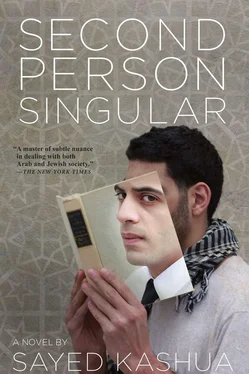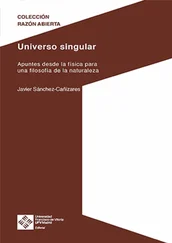At Bezalel, I, a left-wing liberal like most of the students, learned that Arabs are horny, that they think with their dicks — mostly about pussy and mostly about preserving the honor of their sisters’ pussies. I learned that they can get angry fast and that there is no way to know what might set them off. They’re unpredictable and can be aggressive. Honor is desperately important to them; in fact, it’s all that matters to them — personal honor, national honor, religious honor, family honor. Show respect and avoid dishonoring them, and you’re on safe ground. Even the ones that seem the most enlightened are still, in some very basic ways, primitive. They think differently, have a different culture, a different logic. Arabs are more impulsive, more animalistic. The only thing they really understand is force, and when they sense weakness, they attack. Like hyenas. It does not mean that we should be occupying them, that is not what it means, but it’s such a shame that there’s no one you can talk to, such a shame that they don’t change, that they can’t really be trusted. Otherwise we could just sign a peace treaty, make a border, and make sure the two peoples stay friendly, each on their own side. If only they would just let up, let us live, be reasonable neighbors, get over their instinctive need for revenge, get over their obsession with honor, get over their mosque-fed fantasies of an Islamic empire. If only they could just admit that we were here first, that we are the natural owners of this land; if only they would just say thank you and finally understand how generous we have been.
Which is not to say that we don’t have our share of crazies. What about the nut-job settlers who are willing to risk the lives of their children in the name of some divine ideology. Or the ultra-Orthodox, and the Sephardim, who go on and on about ethnic discrimination. If they had any sense they’d come around and thank us for plucking them out of that dark and unenlightened place we found them in.
These things were said in the cafeteria or in the makeshift smoking corner, and they were said for white, cultured Israeli ears alone. The token Arab was always welcomed with open arms at Bezalel, with happiness even, and it never seemed artificial. Nor did the Arabs suffer. It seemed like our Arab enjoyed the whole thing. I think the Arabs felt very welcome at Bezalel and they were invited to virtually all of the events. A lot of girls threw themselves at them, and especially at our janitor, who, word was, could get any Jewish girl he wanted. In the cafeteria and the smoking corners, when we were alone, we, the founders, laughed at those girls and the way they used the Arab to get back at their parents. And we talked about the Arab phallus as art. I didn’t say much during those conversations but I laughed, got the joke. I was the quietest person in the class and no one knew that it was because I was afraid that my accent might emerge, even though I knew I sounded just like them, or very close to it. I knew that I had to stay focused at all times, making sure to maintain my crisp Ashkenazi Hebrew. Monk, is what the kibbutznik called me, also because I never talked about sex. I knew that there was talk in the department of me being gay or in the closet or, eventually, asexual. I picked up on those rumors while listening in on the Arabs’ conversations, who had no idea I understood everything they said. Loti means gay and adim achsas jinsi means asexual. But I didn’t care. I wasn’t looking for a social life at Bezalel, even though on account of my ethnicity I had one without trying. During breaks and free periods I always found myself sitting with the coffee drinkers and smoking with the smokers. Still, though, other than my Saturday morning visits to Noa’s apartment, I had no social life to speak of. I didn’t go to any of the parties, mostly because they were at night, when I was busy with Yonatan, and I didn’t go to pubs or over to other people’s houses for dinner or to work on group projects.
I loved taking pictures and that is all I wanted to do. My show at the end of sophomore year focused on the kids who work at the Mahane Yehuda market, carrying supplies and cleaning up around the stalls. After that my professor called me “the social photographer,” a nickname that I took as a compliment, but many of the other students said that I was stuck, that I wasn’t trying to break through the formulaic doctrines of field photography and that I was scared to reach for something that might be more “artistic.” But the truth was that I had no desire to do that. People were all that I was interested in. Our year-end show was viewed by members of the faculty and either an artist, a curator, or an art reviewer. My grades and appraisals were some of the best in the class. With a little PR, as Noa said, I could have been one of the protégés, but I steered clear of the faculty. I never went to office hours, never confided in them about my photography-related dilemmas. I insisted on doing things my way, shooting only in black and white, and even though some of the teachers thought my insistence was a sort of handicap, I knew that my work was in no way impaired and that each project I did was better than the one that preceded it.
I always shot with the same film, ASA 400, with the same shutter speed and the same aperture. Aside from the assignments that required it, I never touched a digital camera and I never photoshopped any of my pictures. During the first two years of school, I used Yonatan’s Pentax 35mm exclusively, which was considered old-fashioned in comparison to the Canons and the Nikons that the rest of the kids had. And I always used a 50mm lens, no flash, no tripod.
For one of my assignments, the family portrait, I received consent and took pictures of kids and their parents in the center of the Beit Hakerem neighborhood on a Friday afternoon. I also took pictures of kids on their way to school and of a group of Romanian construction workers, who let me photograph them as they sat in the Old City on a Saturday and drank cheap beer. Another project, which got me the top marks in the class, was one I called “First Love,” in which I took pictures of girls on the phone, smiling and twirling their hair. Ruchaleh, who always looked over my work before I submitted it, also thought that one was the best. There were tears in her eyes when she looked at the girls.
“They’re all in love,” she had said, and that’s how the project got its name. The next day she went out and got me a new Hasselblad 6x6. “Yonatan always wanted a camera like this,” she said.
The old security guard at the entrance to the Ministry of the Interior on Shlomzion Hamalka Street asked me to open my bag and then sent me in with a jerk of his head. It was just after eight in the morning and most of the seats in the waiting room were empty. I went over to the wheel and took a number, 624. I looked up at the digital screen above the clerks’ heads, saw it said 617, and sat down at the far end of the back row.
“It’s like an organ donation,” is what Ruchaleh had said when she found out I was using Yonatan’s identity. I realized then that she had known about it for months.
“Why would I have a problem with it?” she said, shrugging. “Maybe the authorities have some issues, but it’s no harm done to me or my son.”
It took me a long time to understand Ruchaleh, or rather, to trust her. At first I thought it was really strange that my actions, which clearly constituted a crime, did not bother her in the least. How could a bereaved mother not care? Then I thought she might be after some kind of sexual quid pro quo, sex in exchange for silence. The poor weak Arab would fuck his way out of his situation and the forty-five-year-old woman would get to feel that she was setting him free while giving release to the passion that was burning inside him. A good deal for both parties involved. I realized soon enough that that was not the case, but I must admit that during those torrid days the thought of accepting such an offer crossed my mind more than once. Had I agreed, though, it would not have been in exchange for her silence or some type of monetary reward. It would have been because back then there really were times that I desired her.
Читать дальше












